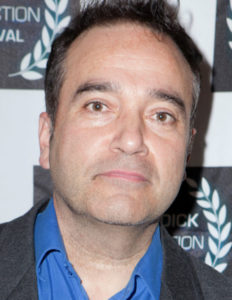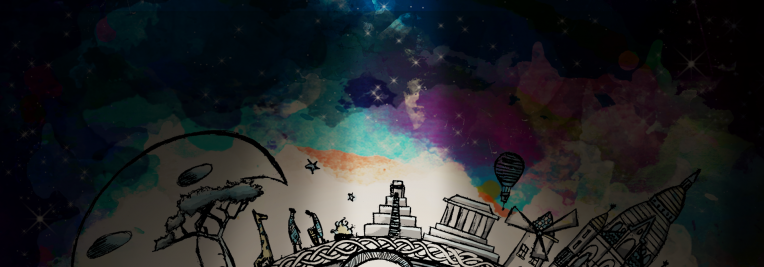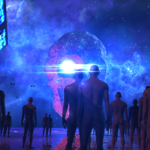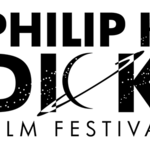It has been almost three years since we last interviewed the founder of the Philip K Dick Film Festival, Daniel Abella, as it now enters its eighth consecutive year. Daniel returns for us today, on the opening day of the festival, to answer a few more questions. I was also fortunate enough this year to be provided with a screener copy of American Quartet and put down a few thoughts in advance of its premiere.
Going from strength to strength, the festival opens today at the Museum of the Moving Image in New York City and tickets are still available for those who want to see the cutting edge of science fiction independent cinema.
Q1) Congratulations on eight years! The festival is now becoming an established part of the festival circuit, how do you feel about how it has grown and where you are now as opposed to when you first started?

DA: I never thought it would last this long. As you know, science fiction doesn’t get the same kind of love as the more dramatic “serious festival.” So I attribute the success of our festival to the passion and love of science fiction from filmmakers and the public.
Q2) I recently did a preview of American Quartet that will premiere at the festival this year and was impressed by its experimental approach. Are you finding (or seeking out) more experimental and creative modes of film-making? Any in particular that stand out as doing something particularly different?
DA: From the beginning we have been promoting and presenting films that deal in alternative forms of storytelling beyond the typical three act structure. This year we have Nameless directed by Luca Nistler which is a “non-film” that depicts a conversation between a child-robot and her mother through aspects of a dream. There is also Ryoko’s Qubit Summer directed by Yuichi Kondo. It shows an entire world inside a quantum computer and the residents communicate through code. When a undeciphered form of communication is found, the program is to be deleted and that sets off an internal apocalypse. We are very pleased that filmmakers are exploring new ways of telling stories and I am hoping the focus will continue to be more on storytelling and character development.
Q3) Speaking of experimental approaches, the festival has showcased a number of VR projects and that continues this year. Do you think that VR has a strong future in the world of film-making?
DA: It is hard to tell because in the U.S., VR is not as popular as it is in Europe and Asia. A new cinematic grammar needs to be invented to take people beyond the five to ten minute ceiling for VR. A VR project we had a few years ago called ”I, Philip” seemed to break the ten minute ceiling and tell a great story.
Q4) The legacy of Philip K Dick is important to so many people and he continues to be one of the most prescient authors of the 20th Century. Are there any areas of PKD’s work that you feel are still under appreciated or unknown?
DA: His later works such as VALIS and Transmigration of Timothy Archer and the Divine Invasion deserve more attention. These works are important to his legacy because their themes deal with a kind of sci-fi gnosticism that would be a breath of fresh air to the ongoing adaptations of his work.
Q5) Any plans to branch out from film and move into art, videogames, performances, installations etc. for future festivals?
DA: This year is the first time we are hosting screenplay categories. The decision to introduce screenplays into the festival is to help audiences value films beyond what they see onscreen. The categories are Best Sci-Fi and Best Supernatural screenplays, which focus on the characters and how their worlds are affected by science, technology, nature, and politics. There is also Best Sci-Fi Prototyping, which emphasizes the design and creation of entire worlds. Hopefully this will spur more writers to consider the written word as another medium for expressing the ideas of PKD. As for videogames, performances and installations, we are open to suggestions as they are new and creative ways to explore stories.
Q6) It’s now 2020 and the future is very much here. In a world that seems increasingly chaotic and on the edge of disaster, what are some of the things that keep you hopeful?
DA: The human spirit has endured wars, pandemics and genocide and we are still here. However, we must not be seduced by the conveniences that technology offers lest we strike a Faustian bargain in exchange for our humanity.
If you’re interested in hearing more, Daniel was a guest on the Sci Fi Saturday Night talkcast last week and you can also follow the PKD Film Festival on Twitter for updates as the festival opens and continues.
I’m once again very grateful to Daniel and his team for taking the time to reach out and get some more of his thoughts and insights here on Future Conscience. I’m sure the festival will continue to grow and find new heights as it quickly approaches its 10 year anniversary!
Header Image from A Brief History of Time Travel (© Majesta Pictures)





